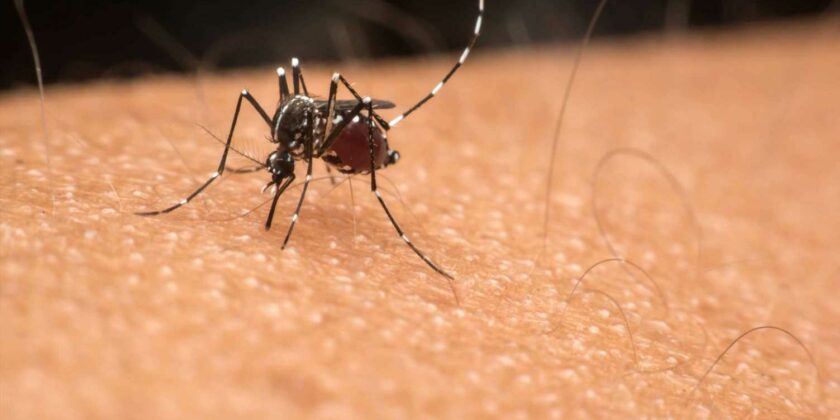DEADLY dengue fever – also known as 'breakbone fever' – has been detected in France.
Neither of the two known cases had travelled abroad and are thought to have been infected in the local area.
The couple, who live in Gardanne, in the Bouches-du-Rhône – near Marseille – are now "cured", according to health officials.
"These are the first autochthonous (locally transmitted) cases of dengue fever identified this year in the region since the start of seasonal surveillance," the regional health agency (ARS) of Provence-Alpes-Côte d'Azur, said on August 4.
Experts are now racing to contain the spread of the disease, by conducting interviews in the local area to identify any other people with symptoms of the illness.
Dengue is spread by mosquitoes and in most cases, isn't serious, the NHS states.
Read more on dengue fever
Brit tourist caught deadly dengue fever in top European hotspot
Warning to Brit tourists heading for Ibiza this summer over dengue fever fears
Dengue is very common in certain parts of the world, such as Africa, Asia, Central and South America and the Caribbean, guidance states.
However, more recently, the bug has been found in Croatia, France, Italy, Spain, Portugal and Madeira.
A 44-year-old British woman made headlines in April after she was infected with the virus on a family trip close to Nice in September.
She went to A&E in the UK with a three-day fever, pains and a rash but later made a full recovery.
Most read in Health
Weight loss jabs set to be prescribed on new NHS apps – without need to see a GP
How dirty air is harming your body – and 10 tips to protect yourself
I fell for 10k-steps-a-day gimmick – I've walked in my PJs I was so obsessed
My little girl died in her dad’s arms days after being told she had tonsillitis
Though Europe's climate has historically not been hospitable to the little disease-carrying pests Dr Owain Donnelly, from London’s Hospital for Tropical Diseases, said the spread of the illness is “rapidly changing”.
“Hotter temperatures and more rainfall, and increasing global trade and tourism, mean we may see more parts of Europe with the right combination of factors for dengue outbreaks," he explained previously.
A report published in June revealed disease-ridden mosquitoes – carrying several diseases including dengue – were found in 26 European countries.
Other diseases on the watch list includeRift Valley fever, chikungunya, West Nile disease, yellow fever and Zika.
How to prevent dengue fever
There is no vaccine available against dengue fever for travellers.
To prevent dengue fever, you need to reduce the risk of mosquito bites and breeding.
Mosquitoes that transmit dengue tend to bite during the daytime
Tips include:
- Cover up bare skin – wear clothing that covers as much skin as practical. Don’t forget feet and ankles.
- Use an effective insect repellent.
- Avoid areas where mosquitoes breed – anywhere with stagnant water such as drains and ponds.
- Keep mosquitoes out of your accommodation – close windows and doors. If you need to have windows and doors open ensure that you have mosquito screens closed. Use "knock-down" insect spray to kill mosquitoes in your room.
- Keep your accommodation free of mosquito breeding areas – containers and dishes that hold even a small amount of water can breed mosquitoes. Dishes under potted plants are notorious culprits.
Most people who get dengue fever don’t have symptoms, and if they do, they are mild.
Between four and ten days after the mosquito bites, symptoms include a sudden onset of fever, headache, muscle and joint pains.
A flat, red rash may also develop.
Read More on The Sun
Tributes to girl, 10, found dead at home as international hunt continues
X Factor star looks unrecognisable as Fearne Cotton marks his birthday
The illness usually gets better within a few days to a week without treatment, but painkillers can be taken to relieve symptoms.
Find out the health risks at your summer holiday destination with this online tool.
What are the symptoms of dengue fever?
People who get bitten by a dengue-carrying mosquito won’t always get symptoms.
If they do, these will usually start between four and 10 days after getting stung by an infected pest.
The symptoms are similar to the flu and include:
- a high temperature
- a severe headache
- pain behind your eyes
- muscle and joint pain
- feeling or being sick
- swollen glands
- a blotchy rash made up of flat or slightly raised spots – this can affect large areas of your body
You should urgently see your doctor or call NHS 111 if you feel unwell after visiting a country where dengue is found.
In rare cases, people might develop more severe symptoms a few days after they first feel ill, including:
- severe tummy pain
- repeatedly being sick
- fast breathing
- bleeding gums or nose
- extreme tiredness (fatigue)
- being unable to relax (restlessness)
- blood in your vomit or poo
You should call 999 or go to your nearest A&E if you have symptoms of severe dengue.
Source: Read Full Article









